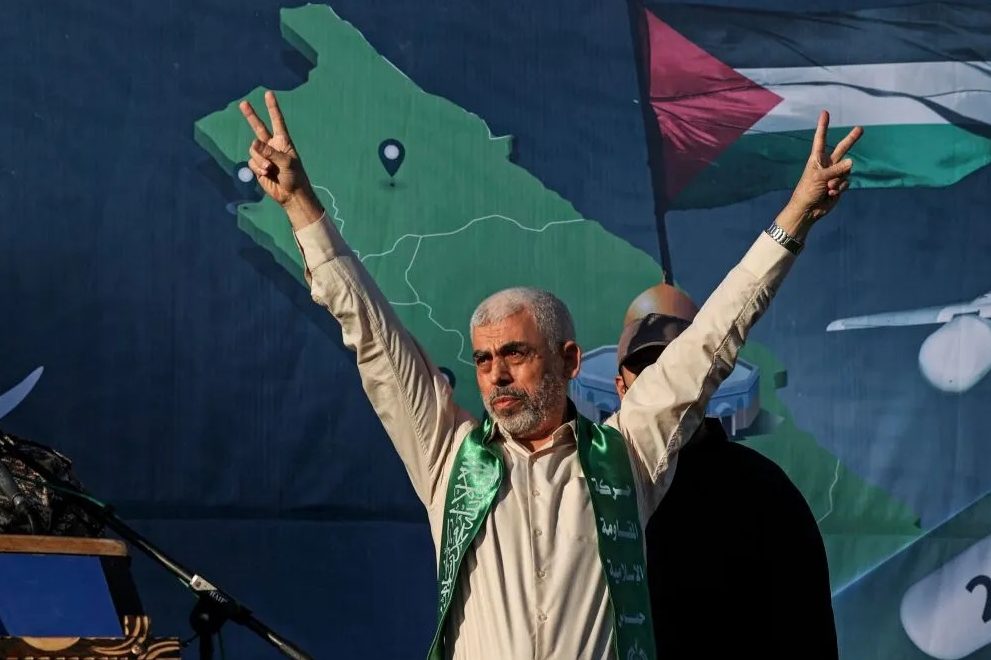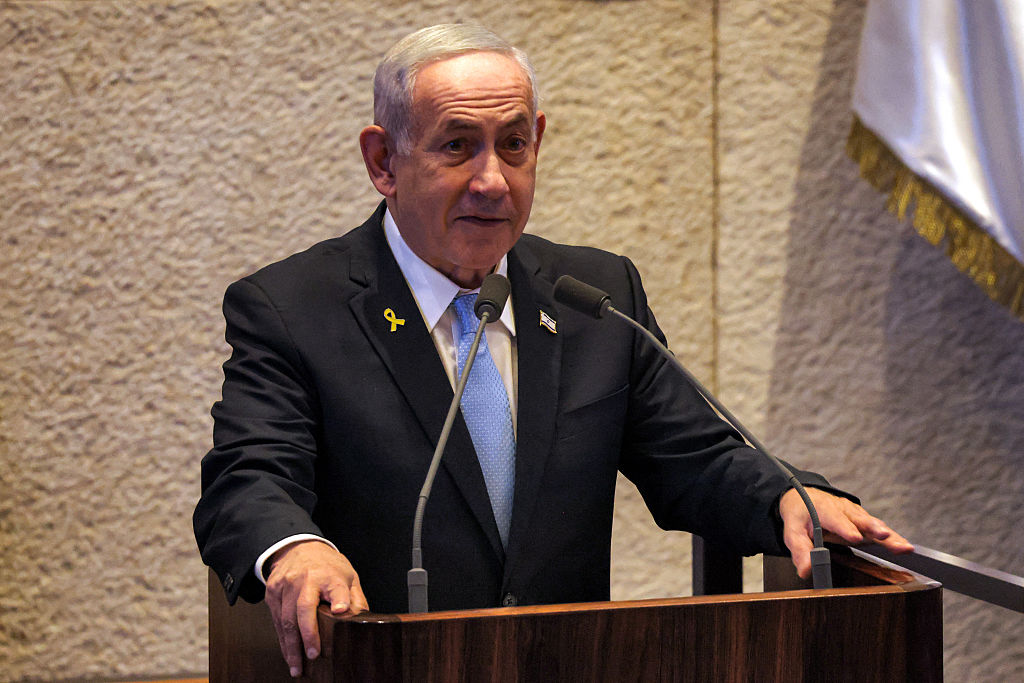Somewhere beneath the rambling town of Khan Yunis, Yahya Sinwar, the murderous leader of Hamas in Gaza, is awaiting his fate. The terrorist leader, who orchestrated the October 7 atrocity and the deaths of 1,200 innocent Israelis, knows that his days are numbered.
Either the sixty-one-year-old Palestinian will die from the impact of a 500-pound satellite-guided Joint Direct Attack Munition bomb exploding above the fetid hole in which he is hiding or his life will end in a hail of bullets fired by Israeli commandos, with orders to kill and not capture the Hamas leader.
While Sinwar’s death, when it comes, should be rightly celebrated, his demise will also provide the Israeli government with a useful “off-ramp” out of the conflict.
Prime Minister Benjamin Netanyahu promised the Israeli people in the wake of the terrorist attacks that he would destroy Hamas. That was always going to be a tall order. After all, how do you destroy an idea, apart from annihilating everyone who believes in it? Even then such a plan probably wouldn’t succeed.
Sinwar’s death should be seen as a useful substitute and could be used to lay the foundations for a longer ceasefire, where one of the central conditions should be the freeing of all of the remaining 130 hostages, along with how Gaza will be administered in the future.
Clearly Israel will have to negotiate with the Palestinians over Gaza’s future and who will control the territory at some stage, unless Netanyahu intends to occupy the region indefinitely.
Back in 2001, after the 9/11 attacks on the World Trade Center and the Pentagon Building in Washington, Britain joined the US in sending special forces into Afghanistan with the aim of killing Osama bin Laden, al-Qaeda’s Saudi-born leader.
While there was great support for that military operation among western democracies, the late Admiral Sir Michael Boyce, then British Chief of the Defence Staff, warned that it was far easier to start a war than to end one. His comments were treated somewhat sniffily by Tony Blair’s Labour government at the time. But the UK remained in Afghanistan for the next twenty years. The two conflicts, Afghanistan and Gaza, are obviously different but Admiral Boyce’s warning remains relevant.
Israel has every right to carry on its war against Hamas but Netanyahu’s war cabinet must also realize that time is running out if it wants to keep the US onside.
At a recent meeting in Israel last week, secretary of state Anthony Blinken made it clear that Israel would have until early January to complete its ground operation against Hamas.
According to sources who were present, Blinken stressed to Israeli officials that the US continued to support their campaign to destroy the terrorist group’s military capabilities in Gaza. However, because of the heavy death toll President Biden expected the war to end three months after it began.
During a press conference with Britain’s new foreign secretary, former prime minister David Cameron, in Washington last Thursday evening, Blinken was asked how much longer the war could go on. “We strongly support Israel’s efforts to ensure that it can effectively defend itself,” he said.
“In conversations with the Israelis we talk about how long this campaign will take and also how it will be prosecuted. These are decisions for Israel.”
But senior Israeli Defense Forces officials are said to privately admit that the latest stage of the conflict, the attack on the city of Khan Yunis, the largest in southern Gaza, will probably be the war’s final wide-scale ground offensive.
Of course, this does not mean Israel will afterwards agree to a ceasefire, but it may allow for a scaling-down of operations. The Israeli army could then transition to a strategy of smaller raids on Hamas strongholds using targeted mobile forces, rather than the current use of entire armoured divisions occupying parts of the Gaza Strip for weeks.
The IDF estimates that they have killed somewhere between 5,000 to 6,000 terrorists — or a fifth of the number that Hamas claimed it had under arms. That means 25,000 terrorists remain signed up to Israel’s destruction.
But the damage wrought on Hamas’s capability to wage future terrorist attacks should not be underestimated. Many lower-level commanders will have been killed or injured, the group’s command and control structure will be in tatters and much of its weaponry will have been destroyed. Many of the terrorist foot soldiers may also now be more worried about the security of their own families than waging a war which will only end with their own messy death. It is also easy to imagine that while many Palestinians will blame Israel for their suffering now and in the future, others will rightly blame Hamas.
So, Sinwar’s death, when it inevitably comes, will represent a notable win and will offer Israel a way out of the conflict with an achievable end game.
This article was originally published on The Spectator’s UK website.


























Leave a Reply